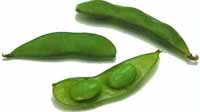콩
Jump to navigation
Jump to search
| ||||||||||
| 코콕콖콗콘콙콚 콛콜콝콞콟콠콡 콢콣콤콥콦콧콨 콩콪콫콬콭콮콯 | |
| 켸 ← | → 콰 |
|---|---|
Jeju
[edit]Etymology
[edit]From Middle Korean 코ᇰ (khwòng). Cognate to Korean 콩 (kong)
Pronunciation
[edit]| Romanizations | |
|---|---|
| Revised Romanization? | kong |
| Revised Romanization (translit.)? | kong |
| Yale Romanization? | khwong |
Noun
[edit]콩 (kong)
Derived terms
[edit]References
[edit]- “4367_4457_4540” in Jeju's culture and language, Digital museum.
- 제주 문화 예술 재단 [jeju munhwa yesul jaedan] (2009) “콩”, in 개정 증보 제주어 사전 [gaejeong jeungbo jejueo sajeon][1], 제주 특별 자치도 [jeju teukbyeol jachido], →ISBN, page 833
Korean
[edit]Etymology
[edit]First attested in the Hunminjeong'eum haerye (訓民正音解例 / 훈민정음해례), 1446, as Middle Korean 코ᇰ (Yale: khwòng).
Pronunciation
[edit]- (SK Standard/Seoul) IPA(key): [kʰo̞ŋ]
- Phonetic hangul: [콩]
| Romanizations | |
|---|---|
| Revised Romanization? | kong |
| Revised Romanization (translit.)? | kong |
| McCune–Reischauer? | k'ong |
| Yale Romanization? | khong |
- South Gyeongsang (Busan) pitch accent: 콩의 / 콩에 / 콩까지
Syllables in red take high pitch. This word takes low pitch only before consonant-initial multisyllabic suffixes.
Noun
[edit]
콩 • (kong)
Derived terms
[edit]See also
[edit] 콩 on the Korean Wikipedia.Wikipedia ko
콩 on the Korean Wikipedia.Wikipedia ko
Categories:
- Character boxes with compositions
- Hangul Syllables block
- Hangul script characters
- Jeju terms inherited from Middle Korean
- Jeju terms derived from Middle Korean
- Jeju terms with IPA pronunciation
- Jeju lemmas
- Jeju nouns
- Korean terms inherited from Middle Korean
- Korean terms derived from Middle Korean
- Native Korean words
- Korean terms with IPA pronunciation
- Korean terms with dialectal pitch accent marked
- Korean lemmas
- Korean nouns
- ko:Vegetables